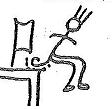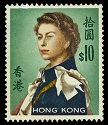|
Grand Fromage posted:I would love to stop paying taxes that go to governments running concentration camps. Upsetting how difficult that is to do. Good think that in the USA there are a shitload of limitations on what the government can and cannot do and it also changes every two years, unlike in China where the government has carte blanche to do whatever it wants forever
|
|
|
|

|
| # ? Jun 5, 2024 11:06 |
|
Kharnifex posted:https://www.youtube.com/watch?v=44SG4obrYcs lmao 
|
|
|
|
So good~
|
|
|
|
Not So Fast posted:I'm not saying you're a liar, I'm saying it's hyperbolic to link a video-game made in China to the camps. It would be like claiming buying Halo 5 funds the concentration camps on the US border. Not really, corporations in America don’t pay taxes
|
|
|
|
Grand Fromage posted:I would love to stop paying taxes that go to governments running concentration camps. Upsetting how difficult that is to do. But our social homogeneity!
|
|
|
|
Fojar38 posted:Genshin Impact right? The blatant Breath of the Wild knockoff? Was listening to some weeb complain about the game not having 'original' Japanese voice acting. But whatever. Games similar to Zeldas and I guess anything Chinese are always 'knockoffs' but like 80% of games are knockoffs of something. How many games were just quake? Or, I was really into Medal of Honor Allied Assault when the first CoD came out and I remember shouting 'its just MoHAA but lovely, why is everyone playing this?' Or look at what The Elder Scrolls did for pc rpgs (though there you got a lot of 'its a clone but way better') Genshin Impact, gameplay wise is actually a lot more of a standard arpg with some stylistic things taken from botw. I don't think the problem is that it's a clone, the problem is it's seriously just not very good. It sucks cuz I totally would be up for a botw clone. I want botw to inspire other games. I probably would have just paid twenty bucks or something for it to not have the lovely pay to win bullshit, but that's the entire game.
|
|
|
|
I thought the problem with the game (despite it sounding like a massive waste of time) was that if you type "Hong Kong" into chat the game displays it as "**** ****"
|
|
|
|
goblin week posted:Not really, corporations in America don’t pay taxes It's more like taxes don't pay for detention camps in the US because USCIS is self-funded through fees and not tax dollars.
|
|
|
|
WeChat censors are getting slack. Yesterday I posted a "Happy national day to the independent nation of Taiwan" with a pic of the Taiwanese flag. And it is still up more than 24 hours later. And it is visible in China too, as I got a reply from one of my former co-workers who posted "no, no no" under it.
|
|
|
|
Ain't there a new BotW coming out? A prequel with no less than three ninja ladies?
|
|
|
|
WarpedNaba posted:Ain't there a new BotW coming out? A prequel with no less than three ninja ladies? That's the Dynasty Warriors spinoff, Hyrule Warriors: Age of Calamity. Its got a BotW style, is set right before BotW, and has the ninja ladies. But it's a different kind of game, so it's not really a new BotW or even a new mainline Zelda. BotW 2 is another game we don't know a whole lot about yet other than the first teaser trailer. Hopefully we'll get it in 2021 (it's the 35th anniversary of Zelda) but who knows, they've been really quiet about it.
|
|
|
|
Every year on the 10th a group of people goes to the Red House, Sun Yat-sen's hideout where the Revive China Society worked to overthrow the Qing. Flag raising, anthem singing etc. This year they got stopped by cops and thrown out by Private Security™ before they even got near.
|
|
|
|
WarpedNaba posted:Well, they managed it with Azur Lane. Which from what I understand is just Kancolle with even less clothing. It's also Kancolle without the weird baked-in apologism for Japanese militarism.
|
|
|
|
Imperialist Dog posted:Every year on the 10th a group of people goes to the Red House, Sun Yat-sen's hideout where the Revive China Society worked to overthrow the Qing. Flag raising, anthem singing etc. This year they got stopped by cops and thrown out by Private Security™ before they even got near. Well, it's their fault for spreading the lie that China hasn't always been ruled by the Communist Party. Do you know?
|
|
|
|
Finally got around to reading Poorly made in China, wonderful book, it does amaze me how many companies pigheadedly continued to manufacture in China when it seems to have been such an enormous pain the rear end. Yea greed sure but at some point it's just plain lunacy.
|
|
|
|
Imagine you’re the person who rakes in the money, but not the person who deals with the bullshit. Division of labor my friend.
|
|
|
|
Tarantula posted:Finally got around to reading Poorly made in China, wonderful book, it does amaze me how many companies pigheadedly continued to manufacture in China when it seems to have been such an enormous pain the rear end. Yea greed sure but at some point it's just plain lunacy. But the KTVs you see...
|
|
|
|
HerStuddMuffin posted:Imagine you’re the person who rakes in the money, but not the person who deals with the bullshit. Division of labor my friend. ding ding ding - guy who deals with the bullshit
|
|
|
|
d0s posted:ding ding ding
|
|
|
|
xposting from the AliExpress thread:Trillhouse posted:lmao
|
|
|
|
BrigadierSensible posted:WeChat censors are getting slack.
|
|
|
|
lol
|
|
|
|
You know that Pew research poll graphic posted earlier? Stumbled on the article and it is even juicer than that one graph. The entire article is well worth a read. https://www.pewresearch.org/global/2020/10/06/unfavorable-views-of-china-reach-historic-highs-in-many-countries/  Boris like really? Not surprisingly Trump is trash. Boris like really? Not surprisingly Trump is trash.quote:The survey also asked about confidence in five other world leaders. Only confidence in U.S. President Trump is lower than confidence in Xi. When considering median confidence, Russian President Vladimir Putin receives slightly higher marks, while confidence in European leaders Merkel, Macron and Johnson are at least twice as high as in Xi. 78% of people hate/no confidence Xi. Best he gets is 5%. Japan goes the extra mile. quote:About half in Japan and Australia also say they have no confidence at all in Xi. Japan also stands out as a country where less than 0.5% of the public – effectively no one – reports having a lot of confidence in China’s president, though no more than 5% report having a lot of confidence in him in any country surveyed.
|
|
|
|
oohhboy posted:You know that Pew research poll graphic posted earlier? Stumbled on the article and it is even juicer than that one graph. The entire article is well worth a read. Yeah. But as has been widely documented, China, the CCP, and Xi give less than no fucks about what the rest of the world thinks of it. So long as they bow to their terrible tantrums. So, whilst it is funny to laugh at how much we hate Xinnie the Pooh, it won't change a thing. And they won't care.
|
|
|
|
BrigadierSensible posted:Yeah. But as has been widely documented, China, the CCP, and Xi give less than no fucks about what the rest of the world thinks of it. So long as they bow to their terrible tantrums. Yup they can't be shamed, the only way to motivate the communist regime in China is for the world to work together to significantly lower their GDP every year until they reform.
|
|
|
|
BTS is facing a backlash in China for honoring US & South Korean War dead, but not the Chinese who fought against South Korea.
|
|
|
|
First favourable inclination I've had for K-pop this decade, encore.
|
|
|
|
 The Korean war isn't ANZAC day. The Korean war isn't ANZAC day.Xi being so unpopular second only to Trump has to sting a little. While it won't do anything to them directly public opinion has helped push governments away from China. Even cock sucker Boris has been forced to U-turn on China.
|
|
|
|
oohhboy posted:
Sucking a cock is a selfless act that brings joy to people. Boris is capable of neither.
|
|
|
|
What about offering his cock to a decapitated pig?
|
|
|
|
WarpedNaba posted:What about offering his cock to a decapitated pig? Different Tory PM. Cameron hosed the dead pig's head.
|
|
|
|
WarpedNaba posted:What about offering his cock to a decapitated pig? silence of the hams
|
|
|
|
lol again
|
|
|
|
quote:Hu Xijin, China’s greatest internet troll - SupChina Fox News of China is a good analogy, or rather, I like it.
|
|
|
|
Meanwhile in Mongol Khanate News: Guardian: China insists Genghis Khan exhibit not use words 'Genghis Khan' quote:The spat comes as the Chinese government has hardened its discrimination against ethnic Mongols, many of whom live in the northern province of Inner Mongolia. One would think that China had learned its lesson about pissing off the Mongols.
|
|
|
|
barbecue at the folks posted:Meanwhile in Mongol Khanate News: Guardian: China insists Genghis Khan exhibit not use words 'Genghis Khan' I was dating a Mongolian from Mongolia and she loving hated Inner Mongolians (and Chinese)
|
|
|
|
barbecue at the folks posted:Meanwhile in Mongol Khanate News: Guardian: China insists Genghis Khan exhibit not use words 'Genghis Khan' https://www.youtube.com/watch?v=p_5yt5IX38I
|
|
|
|
barbecue at the folks posted:Meanwhile in Mongol Khanate News: Guardian: China insists Genghis Khan exhibit not use words 'Genghis Khan' The nation that will lead us into a utopian anti-imperalist future, everyone.
|
|
|
|
Its not called the world's largest racist ethno-state for nothing.
|
|
|
|

|
| # ? Jun 5, 2024 11:06 |
|
Big Willy Style posted:I was dating a Mongolian from Mongolia and she loving hated Inner Mongolians (and Chinese) one should not be surprised by the number of people actually hated mainland Chinese. all they got is RMB and bad attitude
|
|
|





































